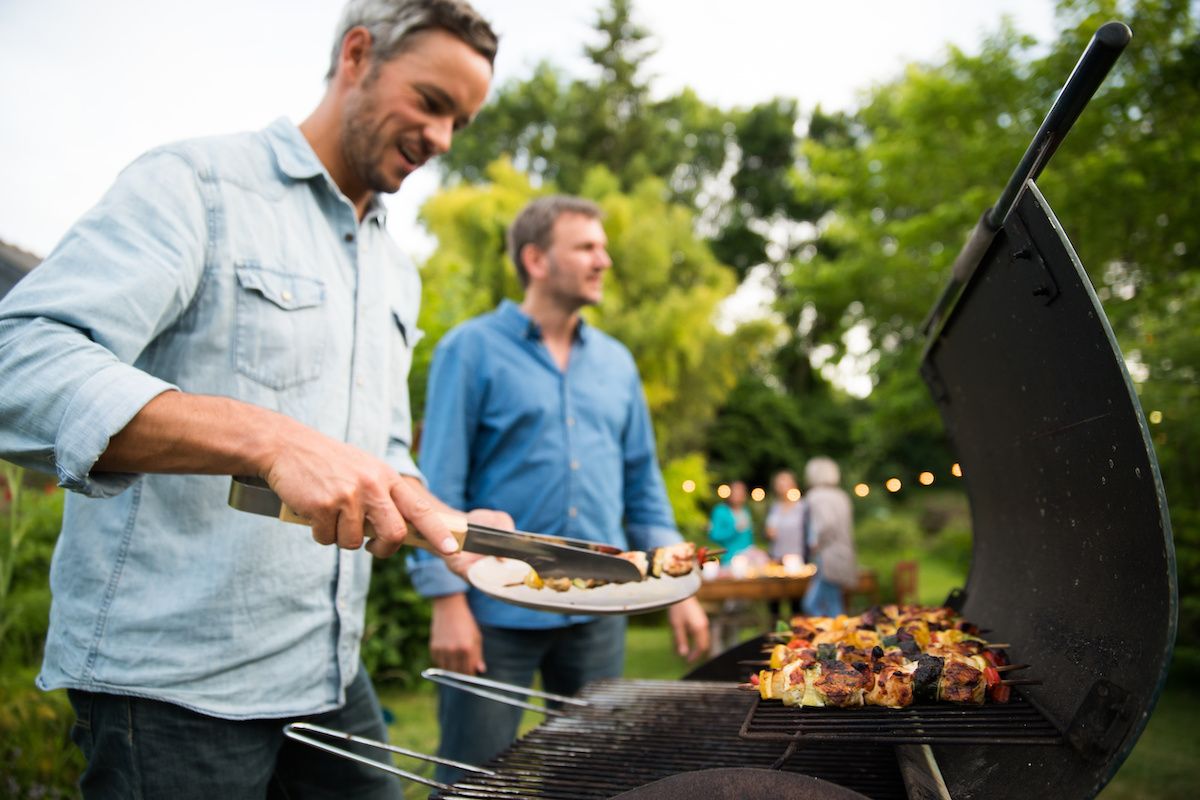How to enjoy healthy, summertime grilling
Memorial Day weekend is here, which signals the unofficial start of summer and, for many, a kick-start to the backyard grilling season.
I’m often asked this time of year if red meat and grilling are really that bad for our health. The most up-to-date research states: “Do so in moderation.” This sums up the best advice I can give on red meat, grilling and its potential impact on your cancer risk.
Decrease the amount of red meat you eat, take steps to grill meat safely (see below) and decrease your intake of processed meats.
Many of us love red meat (e.g. beef, pork, lamb)—especially in the summer! But more than any other food product, eating too much of it can become a potential cancer risk. The recommended serving size for meat is about 3.5 ounces (about the size of a deck of cards). Too much red meat will increase your colorectal cancer risk significantly. It is best to eat less than 18 ounces of red meat a week.
Red meat also stimulates the production in the gut of N-nitroso compounds, which are cancer-causing agents. And cooking red meat at high temperatures (like when grilling) produces two cancer-promoters: heterocyclic amines (HCAs) and polycyclic aromatic hydrocarbons (PAHs). (Read more about both of these chemicals from the National Cancer Institute)
Processed meats are an additional cancer risk. Processed meats include sausage, bacon, ham, hot dogs, pepperoni, salami, pastrami, bologna, corned beef and most deli/luncheon meats. The processing of meat involves nitrites that may form cancer-causing compounds. Processing may also involve smoking the meat, which also forms PAHs, and processed meats contain high amounts of salt and sodium.
Enjoy the grilling season and stay healthier by trying some of these tips:
- Marinate meat prior to cooking it to reduce the amount of cancer-promoting chemicals you will eat.
- Trim excess fat on meats so that less fat drips onto the coals and into the flames. (When fat drips onto hot coals or flames, a cancer-causing compound is deposited back onto food through smoke and flare-ups.)
- Partially pre-cook your meats, and then finish them briefly on the grill for flavor.
- Try grilling fruits and vegetables for a tasty change of pace.
If you think you’re up to a challenge, it’s not too late to take part in “The New American Plate Challenge,” sponsored by the American Institute for Cancer Research. Register today for free and take advantage of a summer full of weekly tips to help you eat healthier and move more—the two most effective ways to reduce your cancer risk and lose weight.
The online program includes recipes for healthy meals that utilize known cancer-fighting foods, plus some approaches to increasing your daily exercise regimen in creative ways. You even get blogging tools to cheer on your friends, co-workers or family members who can go through the program with you.
So go ahead—enjoy grilling this summer and the fun that comes with it! Just remember that the secret to grilling and reducing the risk for carcinogens is what you grill and how you grill it. Just go easy on the portions, choose vegetables and even fruits for a change, and follow “safe-grilling” guidelines. Your body will thank you for it!
